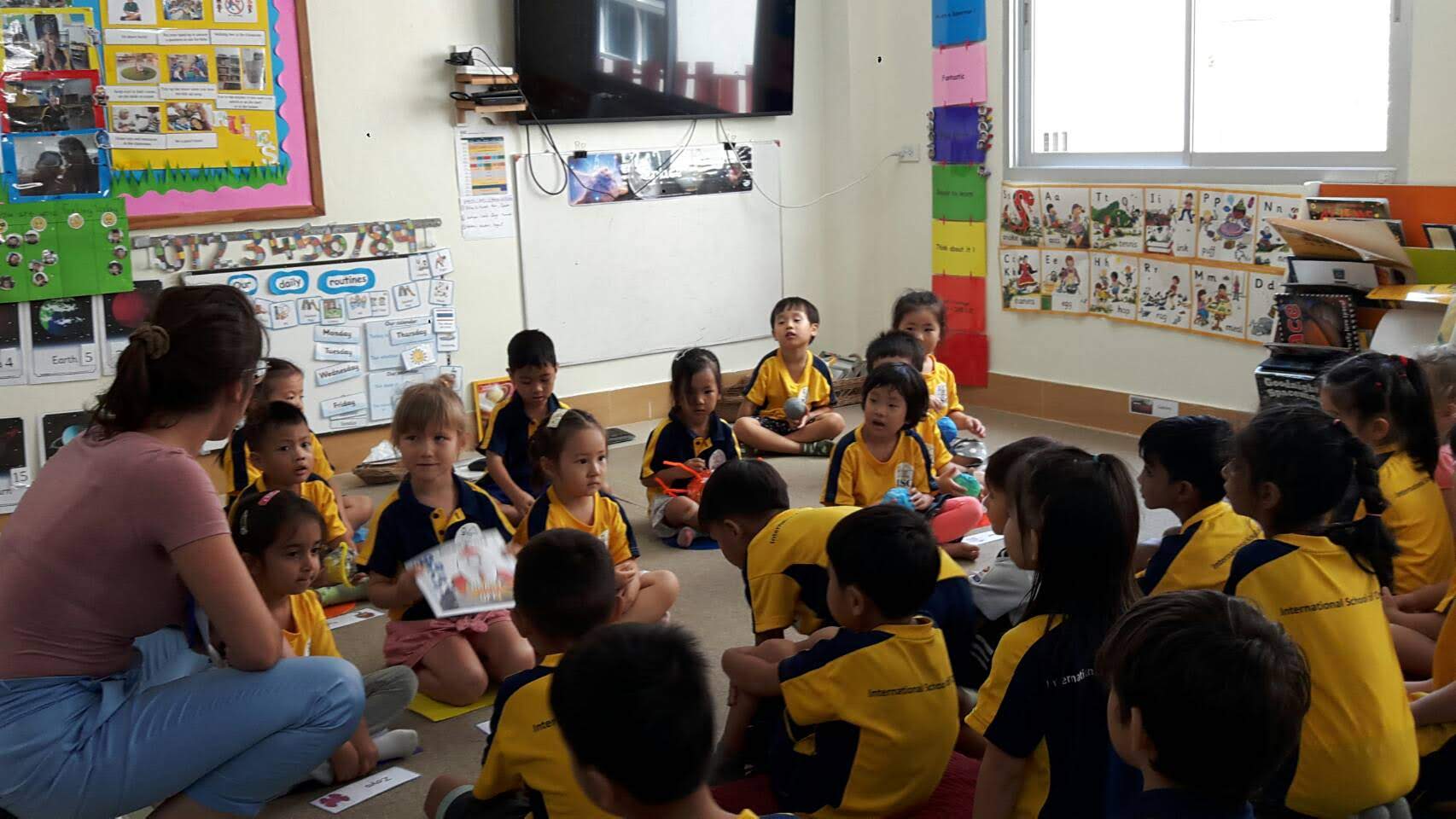As a multilingual person, English being my third language, I have always been interested in multilingualism, language acquisition and finding out the most effective language teaching methods. In my research work at the University of Eastern Finland, I found out how interdisciplinary projects can positively impact children’s language learning and communication skills, in particular.
For this reason, here at ISC, I have already carried out two projects with my class; “The Rocket” Project and the “Solar System” Project as part of “Our Place in Space” topic. First of all, working with interdisciplinary projects means that the children have an active role. By considering their needs and interests and then negotiating with them an end product for the project, we increase their motivation, positive attitude towards learning and language learning. Researchers affirm that motivation and attitude towards a language are crucial in the language learning process. In addition, social and cooperative skills, and group cohesiveness are increased.
The project offers authentic tasks. In our case, making a rocket that children can go in and pretend to be in space, and creating a realistic representation of the solar system. These authentic tasks involve students in “learn by doing” activities, where they can gradually use the language from different disciplines, in order to carry out the tasks.
During the process, I could see how my Early Years students were naming shapes and using measurement units, and topic related vocabulary while building the rocket and playing with friends in it. Regarding the “solar system” project, it was amazing to see how the fact that they made the planets themselves as a class, created so many meaningful experiences for them, and consequently, the whole group could name and identify the names of the planets, and tell some characteristics of them.
However, one evidence of the success of the projects was to see the group presenting the projects to Primary students in Year 1. As they were actively involved and constantly using topic related vocabulary, students with diverse communication skills could confidently share some information and their experience in front of an audience. In addition, I got many comments from parents, telling me how their children were talking about the project and showing understanding of the topic at home.
Witnessing my students motivated and actively engaged in the learning is what makes me work hard to create rich contexts and meaningful learning experiences for them. Working with projects requires a lot of flexibility, creativity and planning skills from the teacher, at the end of the day, seeing my students enjoying their learning and developing their language and communication skills, is what makes me believe in this kind of approach.
